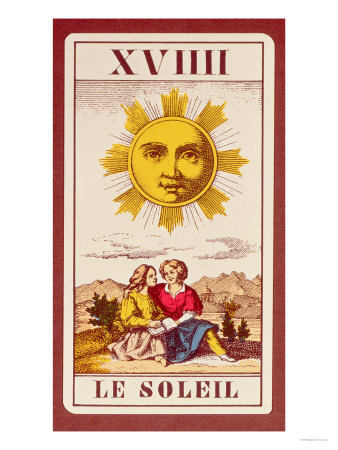
Molly:
You’re going to consider this a little hostile, and I mean it as a provocation yet sincerely: I would consider you a postmodern playwright, the reverence for the canon of modernism and its aesthetic that you voice in your criticism, and which does imbue your plays I think too, notwithstanding. But postmodernism is often now tarred as frivolous or, following Jameson, vacuous, ludic illusions of content. Obviously I think that’s wrong and a gimmicky theory gambit: wrong and in a way racist – because the great postmodern work that needs to be sidelined to make this judgement is largely work informed by the militant culture wars (magic realism in novels, for example, or what Carpentier and Alexis called “the marvellous real” which would include work like Morrison’s Beloved, and feminist reworkings of the canon like Rhys’ Wide Saragasso Sea.) Anyway the closest author for me to you – although on the surface, in atmosphere, there’s not much resemblance – is Edward Bond. Bond is a favourite of mine, and when I first read your plays the similarity seemed very clear (it’s murkier now that I have considered how to describe it) on the point of that distinguishing post-modern process of absorbing canonical work.
You mention elsewhere the importance of what dramatic works don’t say – the significance of the silences, what Macherey pinned his Althusserian theory of literary production on, this abyss in the text. I like how Terry Eagleton modifies that in his (too Althusserian, but let’s ignore that) Criticism and Ideology where he offers a description of what goes into the process of literary production, and one of the principal aspects of this process of course is the reworking of all the found material, the influences and the traditions. But in the post-modern this isn’t about rebuttal and pretence of the new.
As a post-modern, it seems to me, you engage in a kind of braiding of the cables you draw on. In Parking Lot, say: high modernists (Beckett, Pirandello), political moderns (Brecht, von Horvath?) Shakespeare and Aeschylus if I am not mistaken. And then these are rearticulated with an image and fragment vocabulary from mass culture. The references of mass culture seem like bits of broken glass in a mosaic that is reproducing patterns from the canonical catalogue. Little flashes of The Hustler and The Pawnbroker? Just shadows. I remember this great installation I saw once, it was a kitchen, like a 1950s kitchen (wish I could recall the artist, she got carpal tunnel doing this thing for years) , but it was all beaded, with glass beads. You only saw that close up. And everything was sharp and dangerous. The kitchen was also this intensely meaningful and hazardous environment for the absent and implied housewife. Parking Lot reminded of that – this object that at first glimpse is familiar, a drama with characters, in setting and situations we’re prepared to see in American naturalism. But its shimmering, and it’s beaded, and its all symbolic as well on every corner. Every inch of it is layered in history and the history of dramatic arts.
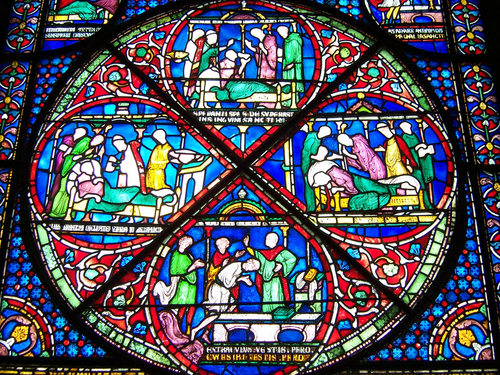
And it seems to me this is a particular kind of post-modern –maybe altermodern is the better term – that undertakes this reworking of the traditions in a serious way and yet doesn’t centralise it – it remains the manner, the mode of production of the direct ingenuous un-ironic drama of character in history. That is, you don’t proceed pretending the spectacle has not altered our world and the context for theatre and as if all this canonical work is not transformed into those codes and materials, but you don’t simply surrender then to contemplation of it or concede that the theatrical ritual is therefore impossible and can only be the spectacle of the “ritual” in quotations.
So I could go through this scene from where Mo is reading the specials, and I warn you that’s what I am going to do in a minute. But first I want to see I’m on the right track.
———————————————————————————
John:
Well, let me respond by starting with this topic of naturalism. This is something I consider very mysterious. Realism, naturalism; terms that get tossed around as if there is general understanding of what they mean. There is, in fact, no understanding at all about they mean.
When you mentioned Bond, I understand, and Shakespeare and Aeschuylus. And certainly Von Horvath. So few people talk about Von Horvath. I would add to this particular lineage, Von Kleist, Buchner, Martin Walser and the unrelated robert Walser, and even Bernhard. And certainly Peter Handke, though more the prose than his plays.
Also, Pinter.
Von Horvath was addressing theatre space in this way that made sense to me on an instinctual level. I’ve heard, for example, people say they heard Robert Wilson speak, and bemoan the loss of dream life in theatre. Now, what Wilson does is of no interest to me at all, exactly because I think HE has destroyed dreamwork in his theatre. And the reason for this has to with the distance he establishes from any consideration of naturalism. We don’t dream this way. Our dreams are naturalistic. They contain fantastic things, impossible occurances….impossible in that they defy the laws of physics, but they exist within this “space”. Ive written before, a good deal, on space in theatre. I was so struck with a comment of Lacan, about the unconscious being beyond reach like a castle or citadel on a hill surrounded by a form of toxic moat. Well, there are obvious echos here of Kafka, and that takes us to Benjamin and Adorno talking about Kafka’s space. One saw it as filmic and one as theatrical. I think its theatrical.
So, when I first began to write for theatre, to even think about it seriously, I felt that what one was doing, as the playwright, and then, for me, later, as a director, was to work out a sense of space. I feel this when I look at Pharaonic temples, or even, really, Gothic cathedrels, or the ‘Carceri’ of Piranesi. I sense this is all a *more* real space, its extra-naturalistic. It’s not a fantasy. Its real. Its so real we can’t stand it.
Shakespeare did this, too. For he was responding to this moment, historically, of geographic expansion. Which Olson wrote about in his book on Melville, and which Ted Hughes wrote about in his book on Shakespeare. These are not imagined spaces. They are real. So, how do I justify saying this? And here I think something of a political aspect enters. History took place, the big invisible forces of history somehow shaped the human’s sensibility about space. And this is true, too, with the ancient Egyptians. And there is a paradox, for they were the most stable of socieities. Now Aeschuylus is so beautiful, he is the one inhalation. Sophocles was an inhalation and exhalation, and by Euripides, you are breathing in and out, repeatedly. So with Aeschuylus, there is no pandering to the idea of performance. Its like a cave painting in some remote prehistoric cave where only one person can view it, after a long journey through tight spaces. What is going on with this? Well, is any of this naturalistic? Of course. The problem came with a new consideration of audience. How would an audience react? Of course Shakespeare thought of his audience………sort of. But not like Ibsen did. Not like Arthur Miller did. So, naturalism is something that can exist only after one strips away certain pretences, certain conventions of a public viewing. So a lot of what we think of as post modern, is a scavanging of history, to use the generalized sense of whichever former work is picked out, is shopped for. I think somehow you have to go back to this work, say Shakespeare, and see what forced that work to happen the way it did. Now, I was deeply affected by film noir. As a boy, that was a profound influence, and I have vivid memories of seeing stuff like Out of The Past, and thinking, well, here we are looking at work that contains this political insistence, and its naturalistic. Except of course its sort of hyper naturalistic. When studios try to recreate this they simply create style. There is no force of history working in it. There is an erasing of history. Everyone, every artist, reacts to the historical —- but it cant be a competition, one is only allowing the force of it to effect you. There is a clear emotional content to this effect. The post modern that feels superficial is because its ironic. Irony interceded in this way that was violent. It was an assasination. Wilson the same. The human is left out. And that sounds almost corny, and its wrong to think , oh, that means we are trying to create some new agey family of man shit. No, if you scratch the human, you get history. Underneath is history. And thats a terrifying thought. Its pointless when people want to debate interpretation……because of course its hermeneutical.. I think to the project now, for theatre, is to realize this historical space, which is ritual space, but thats a loaded word, but to realize theatre cannot invent imaginary worlds either by way of pretend dreams or by way of bourgeois bromides which in the end are abstractions and generalizations. Oh, its about “family”. Such phrases are meaningless. Utterly meaningless.
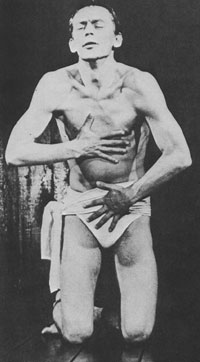
I also think we have to discuss narrative. What is that? What does ‘character mean’?
You are not duplicating reality. There is a creation of something like Prophecy….answering questions not asked. Making present a hidden, so that a scene is more valuable somehow if the playwright just leaves out what is the consensus. Instead there should, by various means, be all that is usually hidden in daily life, this social domination that provides marketed agreements. if the scene has none of those agreements, it’s going to be better. This is not to be confused with articulating what characters are thinking but not saying. It’s nothing at all that simple. Its manifesting an unknown, perhaps often not thought at all. And in historical work one can access these various forms, so in a way it’s why on one level, art or theatre is connected to death. To mortality.
———————————————————————————————————-
Molly:
I think I started in the wrong direction a little. I want to get at this question of naturalism and its others and how their equilibrium in these texts is achieved. I should have begun really with the suggestion to explore two features of your work and how they connect – the poetic language that is nonetheless completely naturalistic in effect, and the production of the sacred/ritual and nonetheless completely familiar space.
Right off the bat I’ll say my hunch is that what your works produce is an alternative to the spectacle as Debord described but that has some points in common, as if in some kind of similar but inverted relation to quotidian reality, but whereas the spectacle seeks to enclose, replace, control and exploit quotidian reality, the drama as you practise it enters into a relation which informs, sustains, assists in the enrichment and reproduction of reality. It seems to me the reassertion of spoken language – which is impoverished and dominated by images in the spectacle – is a major aspect of the construction of a literal space. Once you said something about analogue and how we lose the space in digital recording s of music no matter how expertly done. And this space as a stage and field of the dialectic of abstract and concrete, of aesthetic and historical, is something that your specific distinctive poetic language seems to produce infinitely – this equilibrium of the quotidian/specific and the symbolic, again the question of the naturalism and its lyric, ritual and eternal compliment.
So I think I better go slowly here and start with asking about the poetry. For me what is so striking about the poetry in your plays is the perfect balance between the naturalistic quality of the speech which is laden with the sociological and historical materials of character, and the lyricism. I’ve been really trying to think of a way to describe how this lyrical quality of the poetry creates an architecture for plot and incident, how it kind of plugs the drama into its myriad contexts (historical, traditional theatrical, cultural cinematic) and builds the space – which has depths and dimensions – in which this rite unfolds.
But say first that the space that the drama produces is an acoustic space. The visual matters but we could engage this space that is the intersection of virtual spaces and an irreducible concrete space, blind. But the intersections of the spaces are the layerings of contexts – aesthetic, institutional, historical, cultural – some abstract and some very particular and concrete; what links them all is the lyrical aspect of the speech.
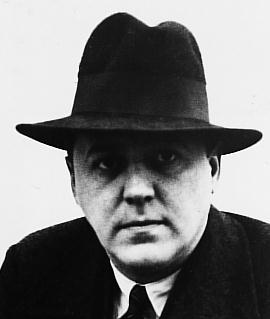
————————————————————————————————————
JOHN;
I think the idea of writing, of playwrighting, and theatre, as a counter-spectacle, is probably both attractive to me, but also correct. But then I think that all good theatre does this in some sense. That is, that this ‘reality’ produced on stage is more real, or a distillation of realness (sic) that ‘the spectacle’ is in the business of erasing. Or maybe, what it does is dismantle the masking. It dissasembles the spectacle. I often feel that way, in fact. That writing and directing become processes of subtraction. You start with a spectacle, a mediated marketed sort of reality, in which a mass audience has almost literally turned away from really looking. And from listening. Its odd how prophetic Artaud was. He really was. That sense of nakedness he longed for, on stage, was really a projecting into the future what he sensed, of a future where reality had become a bourgeois nightmare construction of dishonest gestures, of narcissistic poses. This extends to actors as well. They must dismantle the ‘acting’. Thats a whole huge topic.
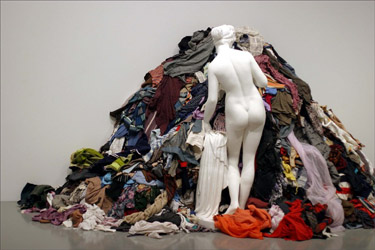
Now the best theatre writing seems to always contain this feeling of nakedness, of stark pared down wholeness, or a plenum, where then a ritual is played out in this weird thing called a performance. Now, the lyrical is interesting on stage. Its very different from reading lyrical poetry to yourself. Or even hearing it read. The stage space provides another way of hearing. This is where its hard not to want to talk about character. But let me try. The voice on stage is also about subtraction. I mean, if you write a play, and hear it read the first time, invariably you cut stuff. You remove all that is corny, not hard and polished in that way. Not honest. Thats what that means, which is a cliche, but telling the truth by way of removing a ‘sound’ of dishonesty, and a form wherein the dishonest is uttered. Its not a legal truth, or a logical truth. It is simply a sense of an existential substantiality. So one is establishing this ‘space’ in which one can hear the truth again. I can say something, a piece of great dialogue, which is a meaningless sentence I realize, but say it on a street corner and obviously nobody hears it. You are just another bi polar out-patient muttering into his shopping cart. But if I have created a theatre space, where a focused attention is brought to bear on this stage area, then what is said, at least CAN be heard.
Of course, as I say, you cannot avoid space. I almost think space comes first. Interesting this discussion of the analogue. For that acoustic space is very important, but it exists in a dialectical realtionship with physical space, but more, with voice. In the 1940s in film, a lot of actors had graduated to film from careers in radio. They had great voices. This is no longer true at all. Which suggests the gradual ascension of the visual.
The lyrical dialogue is often just an embrace of removal. Pinter, of course, knew this. Beckett did in another way. They were both bouncing back and forth between silence and constant speech. From fulsome talking to primordial silence. Beckett had been a secretary for Joyce. Pinter was reacting to Beckett. I think once Godot was out there, modern theatre changed. Now there was something that suggested only the remains of the catastrophe of advanced capital. Of social domination, where the logic would lead …. a dead tree, waiting. That silence, that pausing, was legitimate. That space had a direct link to Shakespeare, of course. To the Mad Tom scene in Lear. Kott wrote so elequantly about that . And as a director, you have to be able to hear the breathing. I said once, this thing about that when a play starts something has just left the stage. And the rest of the play is chasing after this thing. And its a mystery. I still think this is right. But the pursuit is also about making sure the lyrical….the sound, the dialogue…each line, continues to sustain this pursuit. That it not trip and fall. Now, you mention how this plugs into the historical, theatrical, filmic, etc. And then about naturalism. I dont think you can access this counter spectacle, of create a ritual space, without knowing there is something like a sort of tenure to words. You cannot use words that have not been used on the streets of history. So its a listening to the rhythms, the pulse, of the play…. because the words have a sort of alchemy….and its connected to a historical memory of rhythm, or cadence, of speech. And of a physical dimension of sound. Or maybe I should say a gestural. Some words, some lines of dialogue create gestures. This is sort of obvious. But once the obvious examples are out of the way, you find deeper more subtle effects. It is like hearing the sound of the past. Again, the space, the theatre space, allows one to hear. To feel the breathing of the past. I hate to sound too sort of mystical, but thats what happens I think, you can hear the past, the echos, distant, of distrubed air and even if that is just a form of mental illness, it doesnt matter.
I dont think speech on stage is meant to sound realistic. But it cannot be artificial. It cannot identify itself as “dialoge in a play”. So, the lyric is there to distill the truth of speech. You cannot go record people talking and transcribe it and write a scene. It wont work. You have to filter the sounds through your own head.
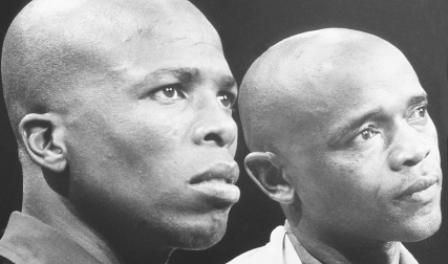
Its funny how a lyric space is constructed, or invented. Ondaatje has a book of poems titled “There is a Trick With a Knife Im Learning To Do”. Now, if that were simply a line of dialogue its not a lyric. As a title however, it creates a space. Dumont’s first or second film was titled “Life of Jesus”. Its not at all about Jesus. So, of course the title on one level makes it about Jesus. Or allows us to consider this. Its also a negation of Jesus stories in some way, and within this negation a space is created. The Ondaatje title becomes accusative, perverse, alienating, but the cadence is familiar and ordinary. The very everyday-ness of the sound of that sentence makes it a bit uncanny. Of course its suggesting a question, too. What is the trick? Is this voice lying? So it plays up on early movie serials…Buck Rogers stuff, cliffhangers, it also suggests, to me anyway, a sort of 1950s advertisment. Its as if the voice of a boy scout is speaking. All of these things plugs it into history. That activity, the plugging in, is creating a pyschic space, firstly.
——————————————————————————————————–
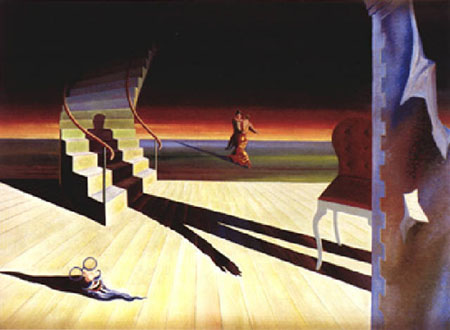
Molly:
Okay, so the lyric is there to distill a truth that the “realistic” hides behind its very illusion of verisimilitude. Here is where I find you post-modern (in the good way), that is, romantic and to a point gnostic:
Adorno, The Culture Industry:
The commercial character of culture causes the difference between culture and practical life to disappear. Aesthetic semblance (Schein) turns into the sheen which commercial advertising lends to the commodities which absorb it in turn. But that moment of independence which philosophy specifically grasped under the idea of aesthetic semblance is lost in the process…Since the beginning of the industrial era an art has been in vogue which is adept at promoting the right attitudes and which has entered into an alliance with reification insofar as it proffers precisely for a disenchanted world, for the realm of the prosaic and even the banausic, a poetry of its own nourished upon the work ethic. Goebbels then prescribed it in the form of an iron romanticism for totalitarian purposes….Officially this education is oriented toward the realm of the ideal, toward everything that is Beautiful and Good, it encourages admiration for the heroic individual and glorifies the values of candour, unselfishness and generosity. And yet from our earliest youth all this is only admitted on the condition that it is not after all to be taken seriously. With every gesture the pupil is given to understand that what is most important is understanding the demands of ‘real life’ and fitting oneself properly for the competitive realm, and that the ideals themselves were either to be taken as confirmation of this life or were to be immediately placed in its service.
But:
Stendhal, in his Life of Rossini, wrote:
And the passions are the very stuff of art; that, of course, is one of the main reasons why art cannot flourish in the sad, cold climate of the North, where Society is the universal judge and arbiter of everything; for Society is above all things dispassionate, ironical, and vain; while its heart is so shrivelled and withered with the terror of ridicule that in the end it is capable of nothing but cowardice in the most absurd degree.
To excell in art, the first essential is to have experienced the consuming fires of passion. A man may be gifted with the most brilliant intelligence, the sharpest wit, the keenest critical faculties, and yet it will avail him nothing; for unless he has first fulfilled the one essential condition, which is at some time or another made himself unspeakably ridiculous, he will never behold art otherwise than through the dim folds of a veil.
So, on this question of the theatrical space, its poetic architecture, the simultaneous multiple universes (ritual, institutional, fictional) of the theatre, as the anti-spectacle or cure for spectacle. Some years ago on a blog I suggested that Realism was the origin of spectacle; it created a replacement or rival to reality, a substitute, whereas the literary and aesthetic objects prior to realism had existed within reality as processes of human relation, integrated not abstracted and alienated in a flight from and posture of hostility to reality (forcing it into scare quotes now) as in the commodity spectacle and commodification generally.. So this was my intuition about the poetic processes of your plays – that the naturalism, the precise mimesis and its seduction with the marvel of trompe l’oeil and the delight of recognition, is acknowledged as a given and a necessity but is de-naturalized, The effect then is a facsimile of human affairs (the naturalistic effects) presented openly as such and then placed in the midst of the poetic and ritual stages/worlds which then inaugurate a process of alienation (we are invited to examine ‘what is character?’ as the orientation of the multiple stages in balance shift around creating these hologram-like naturalistic personas) but followed by recuperation. (“I said once, this thing about that when a play starts something has just left the stage. And the rest of the play is chasing after this thing. And its a mystery.”)The simulacrum redeemed. This recuperation and redemption of the naturalistic simulacrum may not be complete (I think it might be though), but that the whole structure of these nesting scenes or nesting spaces implies and promises it distinguishes these plays, for me, from the modernist canon they absorb. I recognise in this a romanticism that the canonical modernists shunned, having lost faith in or more often loathing/fearing (due to elitism) the Many who must rise in unvanquishable number to make the Shelleyan future, but also associating that dream with the ridiculous and shameful, reducing the passionate to the sentimental.
———————————————————————————————————-
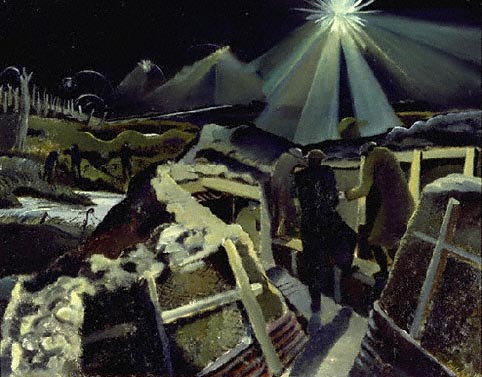
John:
I think both those quotes are very interesting. There is something that gets absorbed in the commodity. In marketing. That absorbtion leaves the viewer with a sense of dissapointment. The listener, as well. For its language and not just image. Speech becomes the bland prose of the dental clinic brochure. Poetry the banality of poetry workshops full of divorcees and retired insurance salesmen. Art is leisure activity. A hobby. Culture is seen, best, as a form of therapy because the radical voice has been absorbed, marginalized, or somehow silenced. So, this image and this speech that is sold, feels to me so connected to a kind of sadness. A disspointment. And finally a resentment. So, how does one write a play in which the text is not absorbed, the sense of character is created — and I think you are right — its naturalistic, its recognized as such, but the production of this ritual keeps it from being absorbed. Now, that ritual is produced by a variety of things that are going on. I keep returning to what isnt said, and what doesn’t happen. The anticipated is negated. I used to say if a gun appears in act one, it cant ever be shot. If there is a knock at the door, dont answer it. Ive tried always to avoid entrences and exits in plays. Let there be a blackouts, and then when the lights come back up, someone else is in the room. This always has felt more like a birth to me. Ah ha, there is someone else in the room now! Its my son. I mean this only half jokingly. An entrance murders the off-stage. You can have entrances…..Waiting for Godot has a couple of terrific ones. But they cannot be relied upon, and if we return to Greek tragedy, everything ‘happens’ off stage, and a messanger returns again and again, with descriptions of what happened. I think thats part of it, if you have an entrance, it must be a messenger with news from elsewhere. Which is Godot of course, too. So, the naturalistic is character. In Fool for Love, the old man sits in a rocking chair. This goes back to Hamlet, right? Ghosts are not unrealistic. Thats the problem with the entertainment industry and Hollywood. CGI and special effects destroys the reality of the fantastic.
I think vampires are more interesting because they function this way, actually. But, ok, this gnostic or ritual space. I think its sustained by a text, by the lyric. Lights come up…..and a character is on stage. A figure in a landscape, in a sense. He of She speaks. The audience notices a second man seated up stage. Ok, this is the start of the play. But what is said must sustain the mythic, or the oracular. Its not about “poetic”….I mean it is, but its so connected to a witholding. The acoustic space is carved out of what isn’t said. The missing utterance. Now, gesture fills some of this absence. Looks. This is what actors do. They must feel what is not there, the missing thing. That tension that sustains the myth is built on feelings of absence, of the missing and its close cousin “loss”.
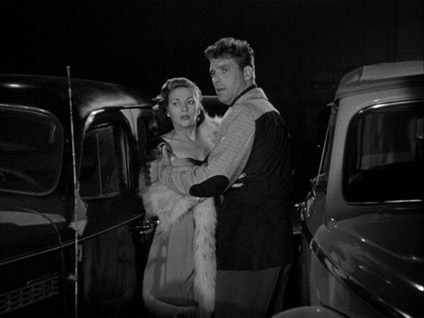
I think our society is permeated with dissapointment. I think it is the prevailing emotional direction for western populations. Theatre should instinctively know this. The ghost is that visitor that always speaks of loss.
One of the problems with both playwrights today, and actors, is that they think its some ‘be here now’- a practice of being present. Well, yeah, on one level, MAYBE…..but more, its much more about elsewhere, the past, the half forgotten. And that is what is carried on-stage, and then you can be “present” or whatever. Its not just …..oh re-act to the scrambled eggs. No, its react by waiting until the ghost, the memory, is there. This is why a sense of the sacred or ritualistic is so important. Its connected to tempo and to how we organize space. Both literally and narratively. A certain story suggests …’space’. I used that Ondaatje title, but Shakespeare does it all the time. The “white cold virgin snow”. Its not the expected ‘cold white virgins now’. The difference is mostly in the breath. It foregrounds ‘cold’ , too, but its breathed differently.
The way speech in Beckett drops off the table.
VLADIMIR:
You must be happy too, deep down, if you only knew it.
ESTRAGON:
Happy about what?
VLADIMIR:
To be back with me again.
ESTRAGON:
Would you say so?
VLADIMIR:
Say you are, even if it’s not true.
ESTRAGON:
What am I to say?
VLADIMIR:
Say, I am happy.
ESTRAGON:
I am happy.
VLADIMIR:
So am I.
ESTRAGON:
So am I.
VLADIMIR:
We are happy.
ESTRAGON:
We are happy. (Silence.) What do we do now, now that we are happy?
VLADIMIR:
Wait for Godot. (Estragon groans. Silence.) Things have changed here since yesterday.
ESTRAGON:
And if he doesn’t come?
If you listen to that rhythm. Its almost like the opposite of californian up-speak. Im sort of making a joke, but sort of not.
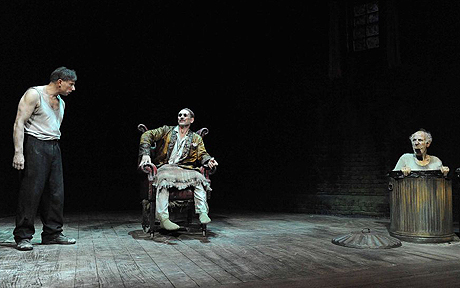
The second act opening of The Dumb Waiter. How space is created, is produced on stage. It comes almost purely from the cadence. From the rhythm. Something then creates space, and the audience can exist in that space, and there is a dialectical relationship somehow.
Now, this idea of realism as the birth of the spectacle, is right I’d say. Of course there are other implications to this. The desire to substitute for reality I think comes from the rise of trading, at the time of Dutch merchants. The bourgoise merchant, successful, and somehow this impulse to horde combined with a new desire to record….maybe its back to Gutenburg, I dont know. But this desire was for control, for subjugating nature. So realism became a contolled nature, as well as a substitute. Those elements outside control seems to drop away from theatre. It didn’t happen overnight, obviously. But its dialectical. Once that impusle is expressed…a desire for the the substitute, the substitue then desires an audience who is perhaps only a substitute in some fashion. I’ve not really thought in these terms, but I have considered that Naturalistic theatre….by Ibsen, and Chekov, which were the most refined expression of this, the other branch, the oracular, the prophetic, that which harkened back to the King James bible, and to Egypt and, on another level to Dante and Milton, that which gave birth eventually to Artaud and Von Kleist and Holderin and Novalis…. that had been, or started to be, marginalized commercially. Its a subtle process. But I think that it relates to space on stage, the ritualistic ceremonial space of the delphic utterance. And the paradox, or dialectic perhaps, is that the delpic utterance cannot but happen in the most naturalistic of texts.
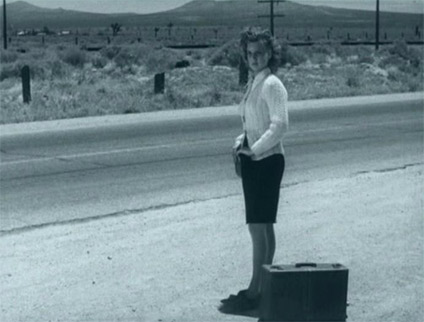
So the naturalistic, I suppose is deceptive. For its only the most precise and pristine sort of clearing, that can allow for this production of psychic narrative, or re-creation of both personal history and community history and societal history. That space on stage is home to the criminal and outcast, in the ceremonial sense. I often feel as its a hanging Im about to watch. When its my own play, I stand in back and I think, who is to be executed tonight?
But anyway, that is as clear as I can express what this sort of contradiction is really about. The lyric and the dramatic space of a stage.
end part one.
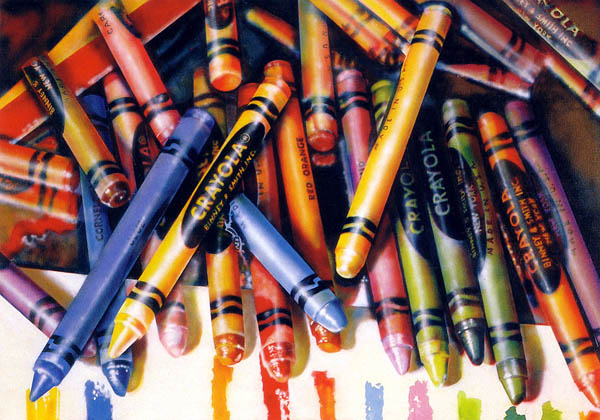

illiams.|”No man is ever old enough to know better.” by Holbrook Jackson.|”Tradition is a guide and not a jailer.” by W. Somerset Maugham.|”If we do not find anything very pleasant, at least we shall find something new.” by Francois Marie Arouet Voltaire.|”Nice guys